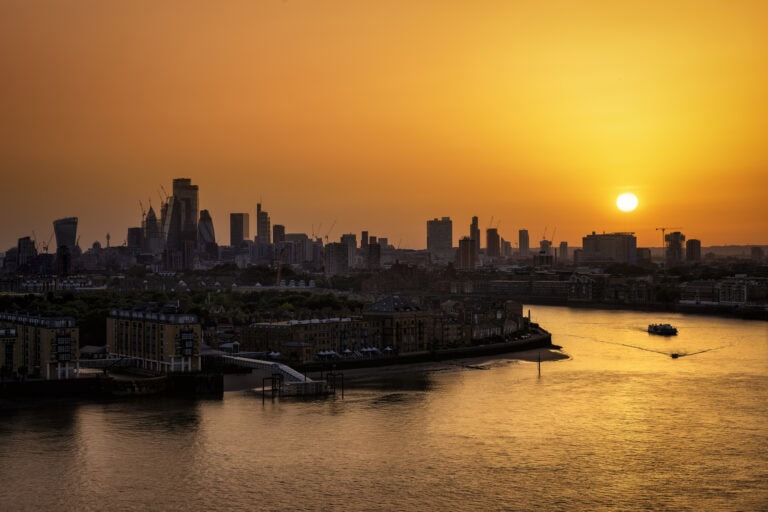Building climate resilience together
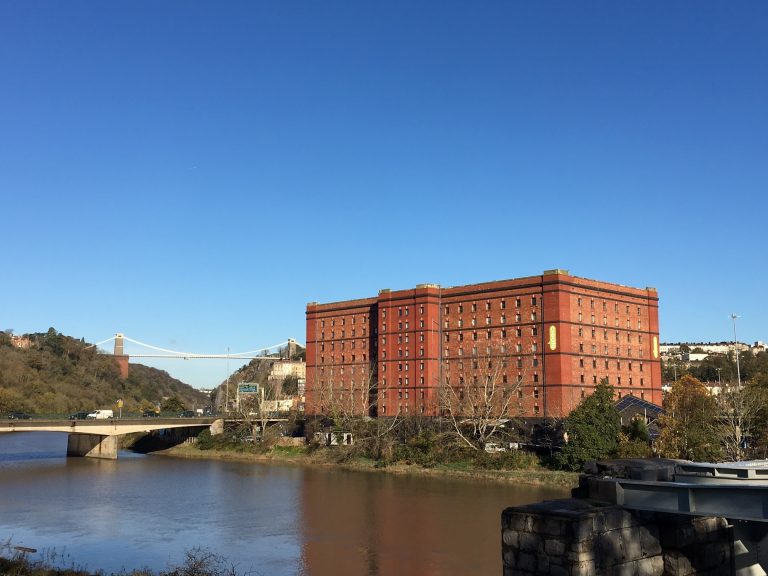
Last week, UKGBC hosted a roundtable at Resource Futures’ head office in Bristol, on the subject of climate resilience in the built environment. As my construction experience comes from the perspective of resource management, circular economy and waste reduction, this event was an intriguing insight into the other ways in which innovative ideas are being used to make the world a more sustainable place.
Twenty local professionals gathered together to hear insights from Sophia Cox and Rob Winch (UKGBC), Amy Harvey (Bristol City Council) and Michael Cowdy (McGregor Coxall). Emma Burlow, Head of Circular Economy at Resource Futures kicked off the event by reflecting on her 20 years’ experience in the sustainability sector, and how climate resilience has dipped on and off the agenda over those years.
Sophia and Rob provided an overview of UKGBC’s vision and current data on the impact of climate change on the built environment. This included the likelihood of localised flooding at the harbourside in Bristol, where the event was based. Key issues raised around climate resilience included the likelihood of flooding, overheating and water scarcity. Sophia provide examples of how some businesses, including Third Nature, Buro Happold, and Flanagan Lawrence are innovating to tackle these critical issues. Innovations included perforated paving slabs which allow excess water to be transferred to surrounding plants, intelligent room booking systems to minimise overheating risk in south facing rooms and aquaponics farms which allow food to be grown sustainably in an urban context using minimal land and a closed loop system. These examples got us all thinking about how ‘innovative’ these projects were, and what could be done to push further in this field.
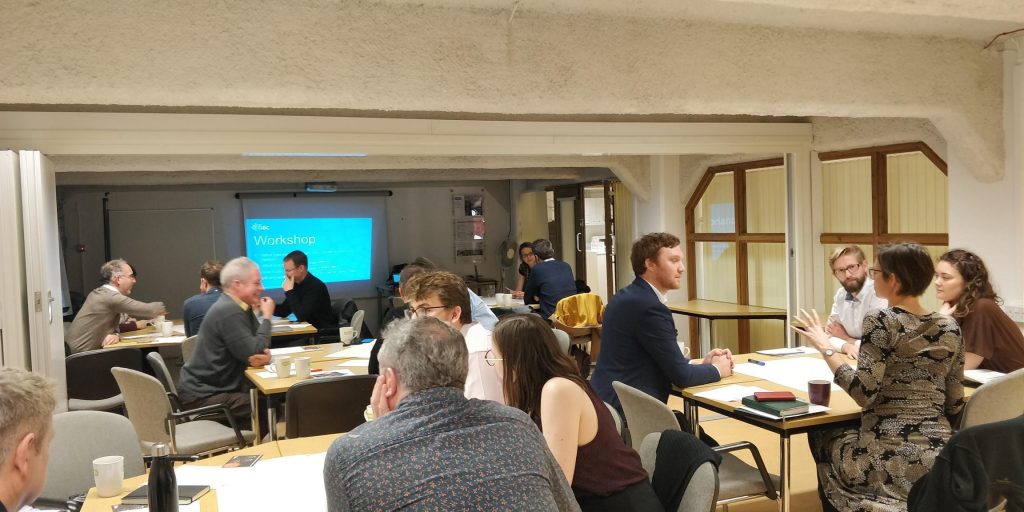
Next, we heard from Amy Harvey, who works on climate adaptation planning policy at Bristol City Council. She provided an important local context to the event, allowing us to understand how these issues were likely to affect our city directly. This included an overview of planning policy BCS13, which outlines that new developments in Bristol should contribute to both mitigating and adapting to climate change and meeting targets to reduce CO2 emissions. Amy outlined how in 2017 Bristol City Council refused a planning application on the grounds of BCS13, as the development had failed to adequately demonstrate that climate change adaptation was integrated into the design. This proved that, to some extent, the policy was working.
To wrap up, Michael Cowdy, from McGregor Coxall provided an insight into Blue-Green Infrastructure, a framework through which we can plan for healthy, equitable and climate resilient cities. This illustrated how critical thoughtful planning is when designing a climate resilient city, particularly regarding public spaces. Michael defined Blue Green Infrastructure as “a network of blue green places that are strategically planned, designed and managed to deliver an increased quality of public life in an urban and rural setting”.
These presentations provided a starting point for some really thoughtful discussion around the room about the interventions that could build climate resilience in Bristol, and the key actors to these efforts. This promoted thoughtful debate on a multitude of topics, from land use to the role climate activists have to play. Overall, the event provided a much-appreciated insight into the difficulties facing those of us committed to lessening the effects of climate change, highlighting that although we were focused on different climate and resource issues, the key challenges and opportunities facing us are similar, including the importance of stakeholders, funding and collaboration. We look forward to collaborating with others in the UKGBC network in future to push these ideas forward.
Siobhan Lamb is a Junior Consultant working on Circular Economy and Communications at Resource Futures. Resource Futures is an employee owned company with a 30-year heritage in the waste and resources industry. We work with a variety of stakeholders including local and national government, private companies and charities. Our construction work includes supporting Zero Waste Scotland’s Resource Efficient Scotland programme to support SMEs in the construction industry with resource management and to help them design out waste.
Related
Building the Movement ahead of COP28

What learnings can we take from the UK Climate Resilience Programme?
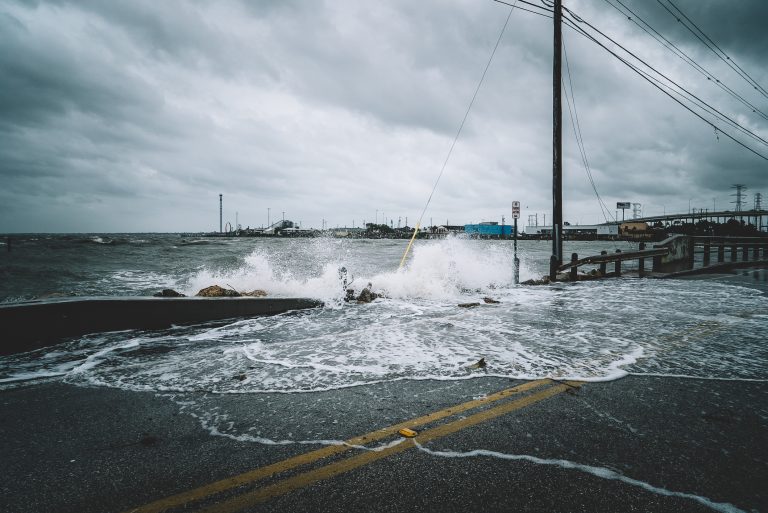
What is it like to measure the physical risk of built assets?
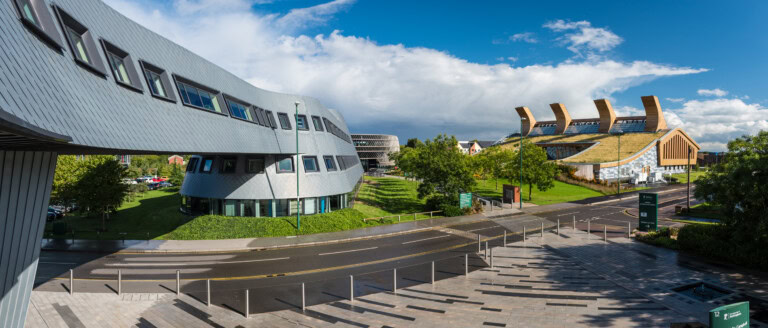
How the urban heat island effect makes cities vulnerable to climate change
